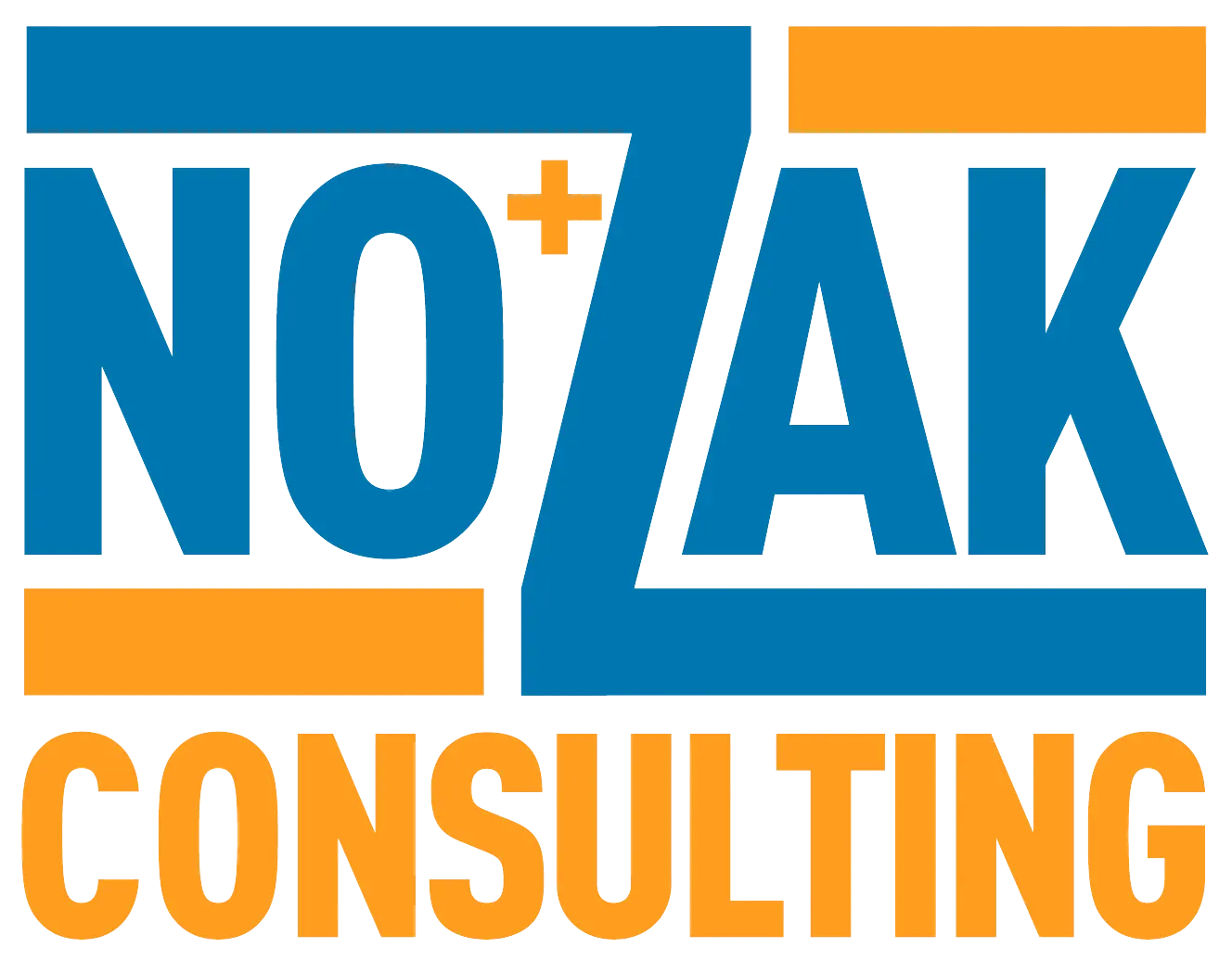When it comes to measuring your website’s overall SEO strength, Domain Authority (DA) is one of the best metrics to track. DA helps businesses understand their competitive position in search rankings and identify opportunities for improvement. Whether you’re managing a small local business website or a large e-commerce platform, tracking your domain authority provides great insights into your SEO performance and potential for growth.
Domain authority reveals how well your website might perform in search engine results compared to competitors. Understanding what influences this metric, which tools accurately measure it, and how to effectively improve your score can dramatically impact your overall SEO success.
What Is Domain Authority?
Domain Authority represents your website’s potential to rank in search engine results. Developed initially by Moz, this metric uses a 1-100 logarithmic scale that predicts how likely a website is to outrank competitors. The higher your score, the greater your potential for ranking success.
Unlike metrics directly from search engines, Domain Authority is a third-party metric that combines multiple factors to estimate search performance. It considers backlink profiles, content quality, technical SEO elements, and historical performance data.
Domain Authority serves as a comparative benchmark rather than an absolute score. A DA of 30 might be excellent for a local business but inadequate for a national publication competing with industry leaders.
Why Domain Authority Matters for SEO
Understanding your Domain Authority offers critical insights into your overall SEO health. This single metric can help you:
- Evaluate your website against direct competitors
- Track improvements in your SEO strategy over time
- Identify link-building opportunities with appropriate websites
- Set realistic expectations for ranking potential
- Prioritize SEO efforts based on comparative strengths and weaknesses
The logarithmic nature of Domain Authority means that improving from 20 to 30 is significantly easier than moving from 70 to 80. This characteristic helps businesses set achievable goals based on their current position.
Search engines like Google don’t directly use Domain Authority in their ranking algorithms. However, the factors that contribute to a strong DA score generally align with what search engines value.
Top Domain Authority Checker Tools
The market offers several reliable tools for checking Domain Authority. Each provides unique features beyond the basic DA score. Here’s a comprehensive overview of the most effective options – and, just for fun, we’ll see how each tool scores Nozak Consulting.
Moz Domain Authority Checker
As the original creators of Domain Authority, Moz provides the most authoritative measurement of this metric through their free Domain Authority Checker.
Moz’s tool gives you access to their proprietary DA score along with spam score, top pages, and ranking keywords. Their Link Explorer feature provides deeper insights into your backlink profile.
The free version offers limited searches, while Moz Pro subscribers receive comprehensive access to historical data, competitor analysis, and regular DA updates.
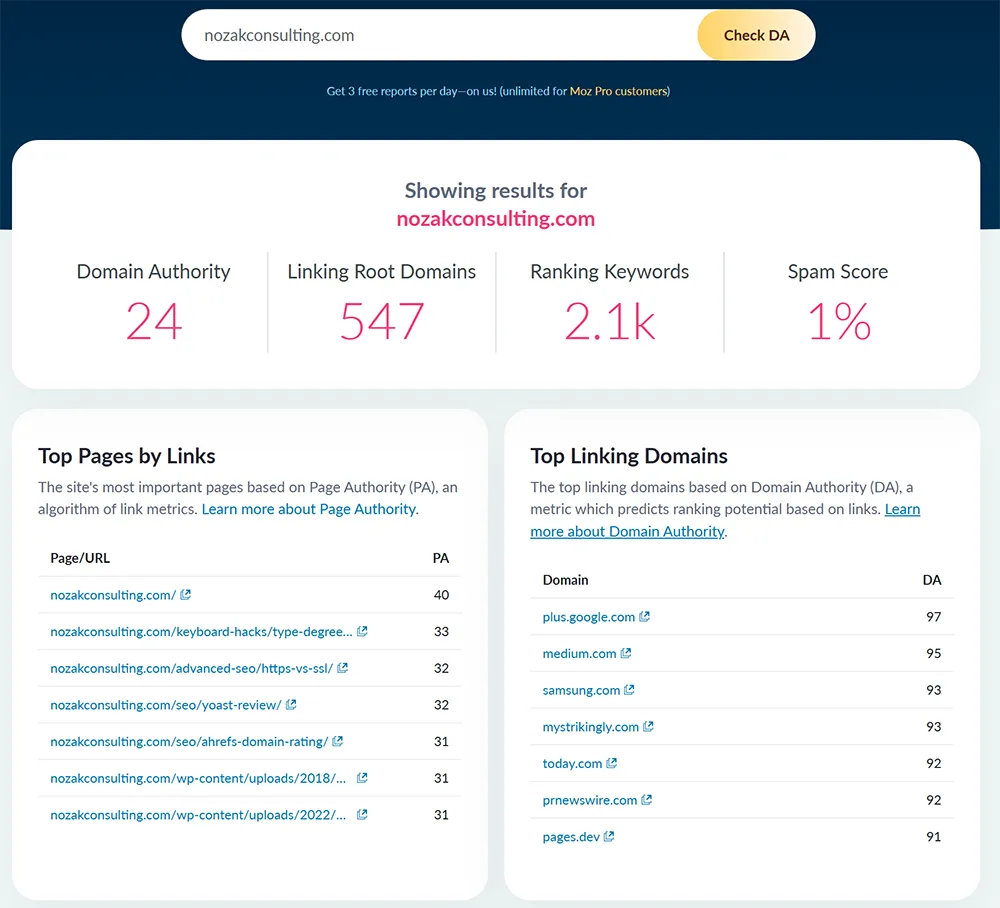
Ahrefs Domain Rating
Ahrefs offers Domain Rating (DR) as their alternative to Domain Authority. While conceptually similar, DR focuses more heavily on the quality and quantity of backlinks.
Ahrefs’ Domain Rating tool provides detailed metrics on referring domains, organic traffic estimates, and competitor comparisons. Their DR score often correlates strongly with actual ranking performance.
What makes Ahrefs particularly valuable is the depth of competitive data available alongside the domain rating, allowing for comprehensive competitive analysis. Ahrefs is the tool of choice for Nozak Consulting.
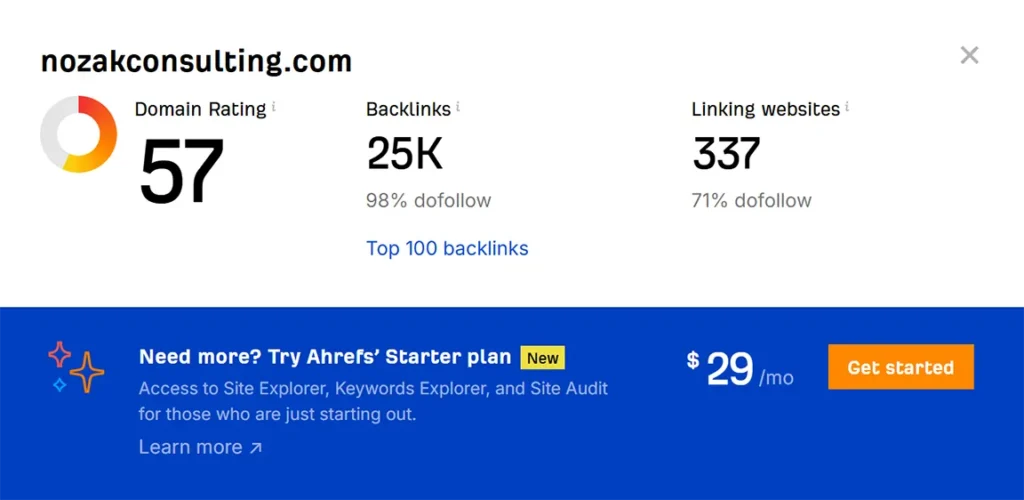
SEMrush Authority Score
SEMrush has developed their Authority Score as a composite metric that evaluates website authority. This score combines backlink quantity and quality with organic search data and website traffic patterns.
The SEMrush tool provides a holistic view of domain health with insights on toxic backlinks, ranking improvements, and keyword positioning. Their interface makes tracking authority changes over time particularly intuitive.
SEMrush’s strength lies in connecting authority metrics directly to actionable SEO improvements and specific keyword opportunities.
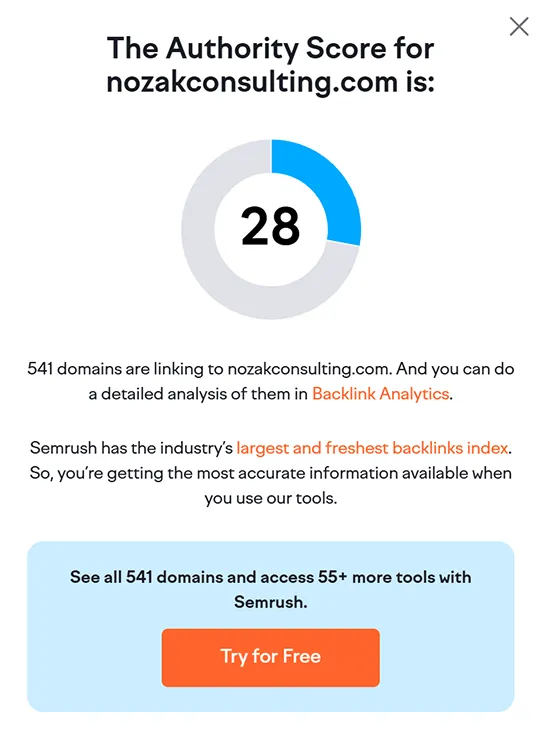
Majestic Trust Flow
Majestic’s Trust Flow offers a different perspective on domain authority by focusing specifically on the trustworthiness of linking domains. Their measurement examines how many clicks away a site is from a set of trusted seed sites.
The Majestic Site Explorer tool provides both Trust Flow and Citation Flow metrics to evaluate link quality and quantity respectively. Their topical Trust Flow categorizes authority by industry relevance.
This approach is particularly useful for identifying potentially harmful backlinks and understanding the contextual relevance of your link profile.
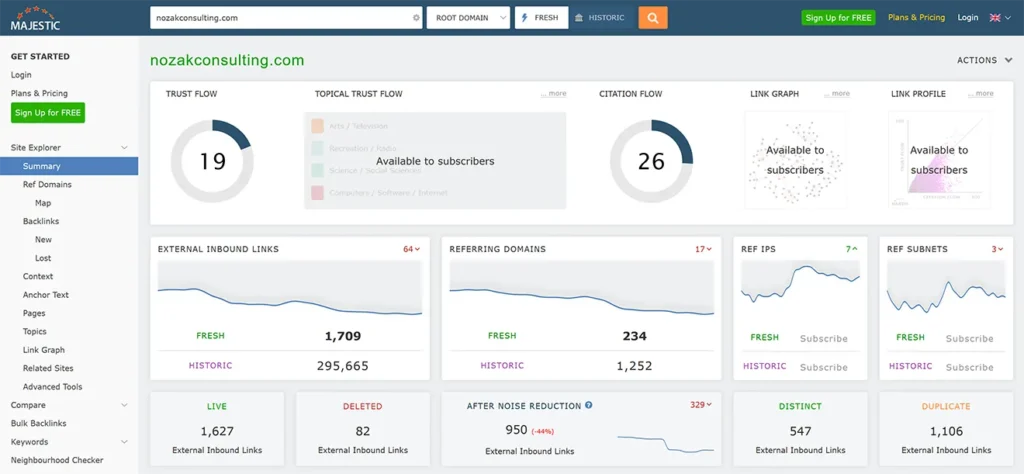
Ubersuggest Domain Score
Neil Patel’s Ubersuggest offers a simplified Domain Score that combines various authority signals into an accessible metric for businesses new to SEO.
The Ubersuggest platform provides domain score alongside keyword opportunities, content ideas, and basic backlink data. Their user-friendly interface makes authority checking accessible for non-technical users.
For small businesses or beginners, Ubersuggest offers an excellent entry point into domain authority monitoring without overwhelming complexity.
No example from Ubersuggest, however. To view your results you have to fill out a lead capture form – then they email you a 7 Week Action Plan instead of actually giving you your domain score. Bit of a bait and switch, to be honest.
How to Improve Your Domain Authority
Improving Domain Authority requires a multifaceted approach addressing various aspects of your digital presence. Focus on these key areas:
Building a strong backlink profile remains the most influential factor in domain authority improvement. Quality outweighs quantity – a single link from a highly authoritative site in your industry can outweigh dozens from low-quality sources.
Content quality signals trustworthiness to both users and search engines. Creating comprehensive, well-researched content establishes your site as an authority worth linking to.
Technical SEO fundamentals provide the foundation for authority growth. Ensure your site is crawlable, mobile-friendly, secure with HTTPS, and delivers excellent page speed performance.
Patience is essential in domain authority improvement. The logarithmic scale means progress becomes increasingly difficult as your score rises. Most websites see measurable improvements over quarters rather than weeks.
Limitations of Domain Authority Metrics
While domain authority metrics provide valuable insights, understanding their limitations helps set appropriate expectations.
Domain Authority scores update periodically rather than in real-time. Changes to your SEO strategy may take weeks or months to reflect in your DA score.
Different tools use different methodologies to calculate domain authority. Your score may vary significantly between platforms, making it important to consistently use the same tool for tracking. For example: Majestic scored us as low as 19, while our preferred tool (Ahrefs) scored us at 57.
Domain Authority represents a prediction of ranking potential rather than an absolute measure of website quality. A lower DA site with highly relevant content can still outrank higher DA competitors for specific queries.
Using Domain Authority Strategically
Domain Authority becomes most valuable when incorporated into a comprehensive SEO strategy. Consider these approaches:
Competitive analysis begins with identifying DA scores for your direct competitors. This baseline helps set realistic goals and identify opportunities where you might outrank similar businesses.
Link building strategy benefits from DA insights by prioritizing outreach to websites with appropriate authority levels. Target sites with DA scores 10-20 points higher than yours for optimal impact.
Content planning can leverage domain authority data to identify topics where you have authority advantages. Creating content clusters around these strengths reinforces your expertise.
Regular monitoring of domain authority changes provides an early warning system for potential SEO issues. Sudden drops may indicate problems with backlinks or technical aspects requiring attention.
The Future of Domain Authority Measurement
As search algorithms evolve, domain authority metrics continue adapting to remain relevant. Several trends are shaping the future of authority measurement:
AI-powered authority metrics are beginning to incorporate machine learning to better predict ranking potential across different search intents and queries.
E-E-A-T signals (Experience, Expertise, Authoritativeness, and Trustworthiness) are increasingly important in authority evaluation, particularly for YMYL (Your Money Your Life) topics.
User engagement metrics like bounce rate, time on page, and click-through rates are being incorporated into more sophisticated authority models.
Make Informed SEO Decisions with Domain Authority Data
Domain Authority provides a valuable compass for navigating the complex world of SEO. By regularly checking your score using quality tools, you gain insights into your website’s competitive position and potential for improvement.
Remember that domain authority represents just one dimension of SEO success. Combine this metric with other key performance indicators like organic traffic, conversion rates, and keyword rankings for a comprehensive view of your digital performance.
The most successful SEO strategies use domain authority as a directional metric rather than an end goal. Focus on creating exceptional user experiences, valuable content, and earning quality backlinks – the authority will follow.
Ready to improve your domain authority and enhance your overall SEO strategy? Contact Nozak Consulting today for a comprehensive SEO audit and customized strategy to boost your website’s authority and search engine rankings.
